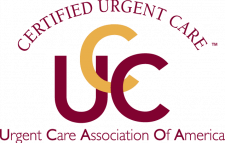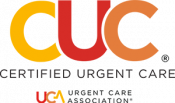Muscle strains can hit any one of us. From kids to adults and athletes to the elderly, muscle strains don’t discriminate. They are caused by various reasons but most often due to an accident or muscle overuse.
Ranging from minor to severe, muscle strains can instantly disrupt our day and stop us, quite literally, right in our tracks. Knowing how to treat muscle strain is an important part of your overall healing process and long-term muscle recovery.
Let’s discuss what muscle strains are and exactly how to treat them.
What Is a Muscle Strain?
A muscle strain is a direct injury to your muscle or tendon. It is more commonly referred to as a “pulled muscle.” It occurs when your muscle or tendon fibers are overstretched and sometimes, in extreme cases, torn.
Causes
There are various instances that could cause a muscle strain, including:
- Overworking a muscle
- An accident
- Poor posture
- Lifting improperly
- Lifting an object that is too heavy
Symptoms
When you strain a muscle, symptom severity can range from mild to severe based on the extent and cause of the injury,
Symptoms of a muscle strain include:
- Swelling
- Bruising or redness
- Difficulty or inability to use the affected muscle
- Sudden sharp pain when using the affected muscle
- Pain at rest
- Tenderness
Muscle Strain Types
Muscle strain severity is broken down into three separate grades.
1. Grade I:
A mild muscle strain that damages less than 5% of muscle fibers.
2. Grade II:
Significant loss of muscle movement affecting many muscle fibers but not resulting in any muscle rupture.
3. Grade III:
The most severe muscle strain, involving a muscle or tendon rupture resulting in significant swelling and intense and constant pain. Many with grade III muscle strains require surgery to reattach the affected muscle or tendon and months of recovery before the muscle or tendon is back in complete working condition.
4 Ways to Treat Muscle Strain
Treatment depends on the grade of muscle or tendon injury.
1. Mild to moderate muscle strains follow the “RICE” rule.
- Rest to avoid further complications
- Icing to reduce swelling and pain
- Compression for support using a bandage
- Elevation to prevent swelling and fluid retention
2. Over-the-counter pain relievers alleviate pain.
Acetaminophen or ibuprofen are great options to manage pain and reduce swelling for all levels of muscle strain. This treatment option is often used in conjunction with other treatment options such as rest, icing, or, in more severe cases, orthopedic surgery.
3. Heat works wonders for muscle strains.
Use a heating pad a few times a day about 3 days after the initial injury to reduce pain and swelling and promote healing. It is important to note that you should never apply heat directly to bare skin. For safety from burns, always wrap the heating pad in a towel or other layer of protection.
4. Physical therapy helps with more severe muscle strains and postsurgery remobilization.
If you’ve experienced a grade II or III muscle strain that requires long-term care or surgery by an orthopedic surgeon, physical therapy is an ideal treatment option to restore mobility and increase functionality in the affected joint or limb.
When to Visit Emerald Coast Urgent Care for a Muscle Strain
Most muscle strains heal on their own with time and rest.
Moderate to severe muscle strains require immediate attention, especially if you are experiencing unrelenting pain.
We urge you to visit us if:
- You feel or hear a “pop” in your muscle.
- Your muscles become swollen.
- The affected area changes color.
- You cannot move the area where the injured muscle is located.
- Your symptoms worsen after 48 hours.
We are open seven days a week to professionally treat your muscle strain. Your health and well-being matter to us. Don’t delay care. Simply walk in today to get the treatment you need now for your muscle pain and strain.




